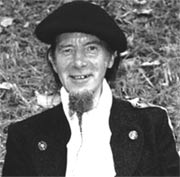Sustainability
SUSTAINABILITY has become a touchstone of modern Scottish politics.
Once a dish associated with the lentil-supping, tree-hugging fringe, it is now served with almost everything on the political agenda. More than a buzzword, “sustainability” is becoming a kind of new-age industry with a legion of civil servants, engineers, academics employed in thinking of new ways for Scotland to move towards a huge 80% reduction in carbon emissions in the next 30 years.

 KEN Skeel, who has died aged 61, was a veteran of the campaign for a Scottish parliament, free thinker and raconteur.
KEN Skeel, who has died aged 61, was a veteran of the campaign for a Scottish parliament, free thinker and raconteur.